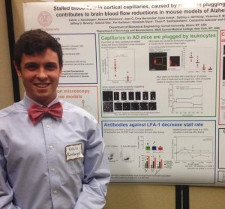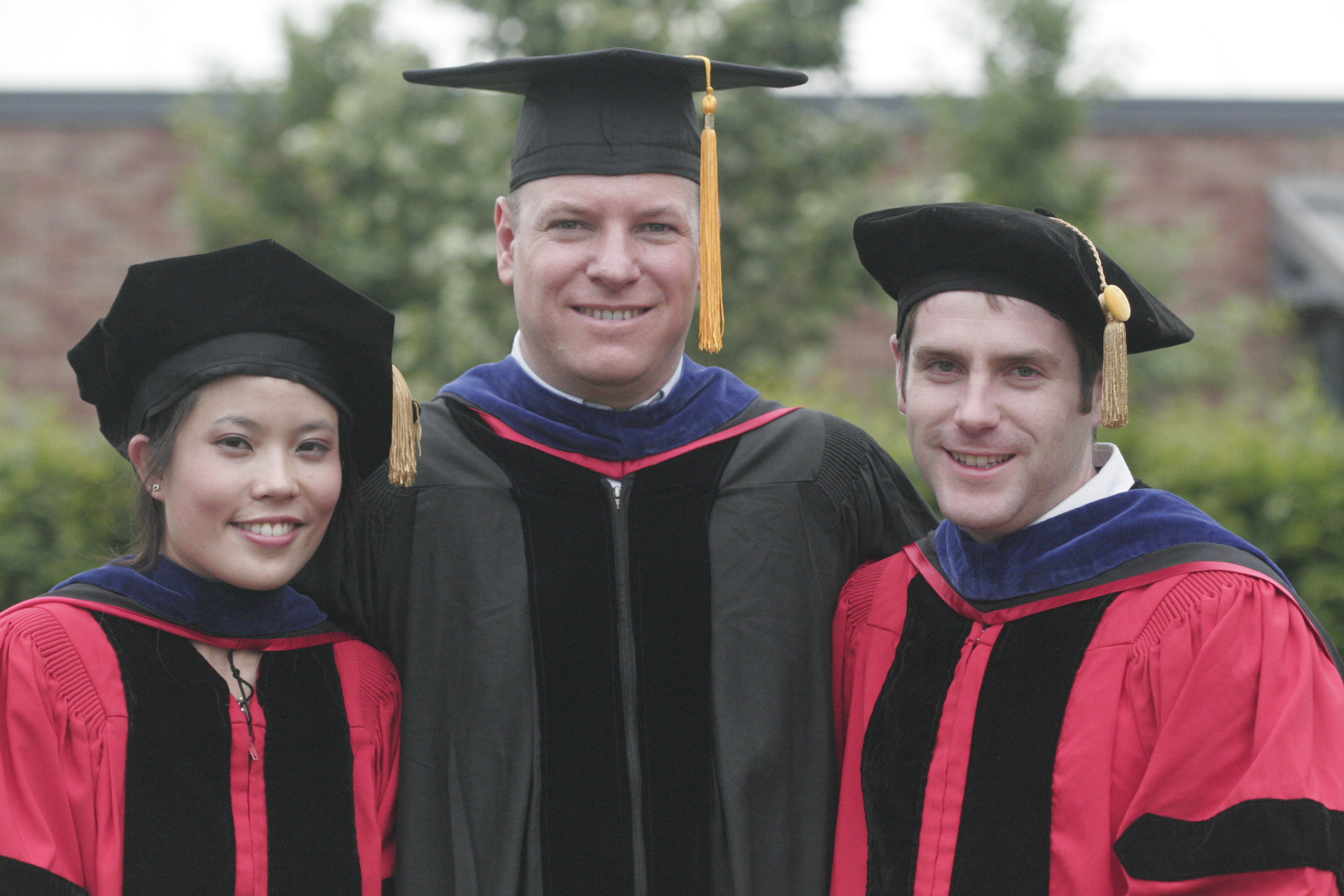Chris recently discussed some of our ongoing work using optical techniques to determine the cause of reduced brain blood flow in Alzheimer’s disease.
Link to video at The Optical Society
Cornell’s new Broadening Experiences in Scientific Training (BEST) program, funded by the National Institutes of Health, was profiled in Science Careers. One track in Cornell’s BEST program focuses on science policy and is led by Chris Schaffer.
Chris Schaffer was elected by the faculty to serve on the University Faculty Committee. This committee serves as a primary liaison between the university administration and the faculty and also acts as the executive committee for the faculty senate (where Chris is also serving as a senator). Chris’s term will begin this summer and run through 2017.

Calvin Kersbergen presented at the annual Cornell BioExpo poster competition for the lab’s research on manipulating capillary plug rate through depletion of leukocytes in a mouse model of Alzheimer’s disease. BioExpo is a research symposium that celebrates biological and biomedical research performed by undergraduates and masters of engineering students on campus and is organized by the Institute of Biological Engineers at Cornell. His poster, “Stalled blood flow in cortical capillaries, caused by recurrent plugging by leukocytes, contributes to brain blood flow reductions in mouse models of Alzheimer’s disease,†placed 2nd in the poster competition, winning a $250 cash prize!

A number of people have completed degrees at Cornell from the lab this year. Ida Bernstein, Rob Fetcho, Dalanda Jalloh, Susie Jin, Sanket Pattanaik, and Steve Tilley all received undergraduate degrees. Morgan Brophy, Ryan Chowdhury, Jason Jones, and Andy Siliciano all received Master of Engineering degrees. Finally, Matt Farrar and Puifai Santisakultarm received Ph.D. degrees. Congratulations to all the graduates!
Liz Wayne is one of eight recipients of the 2013 Cook Award. The Cook Award is named in honor of the late Constance E. Cook, Cornell’s first woman vice president, and the late Professor Emeritus Alice E. Cook, founding member of the Advisory Committee on the Status of Women. The Award honors individuals who deserve recognition for their commitment to women’s issues and their contributions for changing the climate for women at Cornell. Liz was nominated by Dr. Sheri Notaro in acknowledgement of her achievements and contribution to the Cornell community. In particular, for organizing the Northeast Conference for Undergraduate Women in Physics. The awards ceremony will be held February 28th, 2013.
In two new papers that appeared this week, the Schaffer-Nishimura lab continues to increase our understanding of how bleeds from small blood vessels impact the health and function of nearby brain cells. A short review paper that appeared in the journal Stroke outlines differences in impact of a clot or hemorrhage to a small blood vessel in the brain, emphasizing the greater destruction caused by occlusions and the potential role of inflammation in driving cognitive dysfunction after microhemorrhage. An original article that appeared in PLoS ONE shows that microhemorrhages cause a temporary loss of the ability of nearby neurons to respond to a peripheral stimulus, but that these cells recover normal function in the hours after the injury. Together these articles advance our understanding of how small brain bleeds may contribute to cognitive decline.